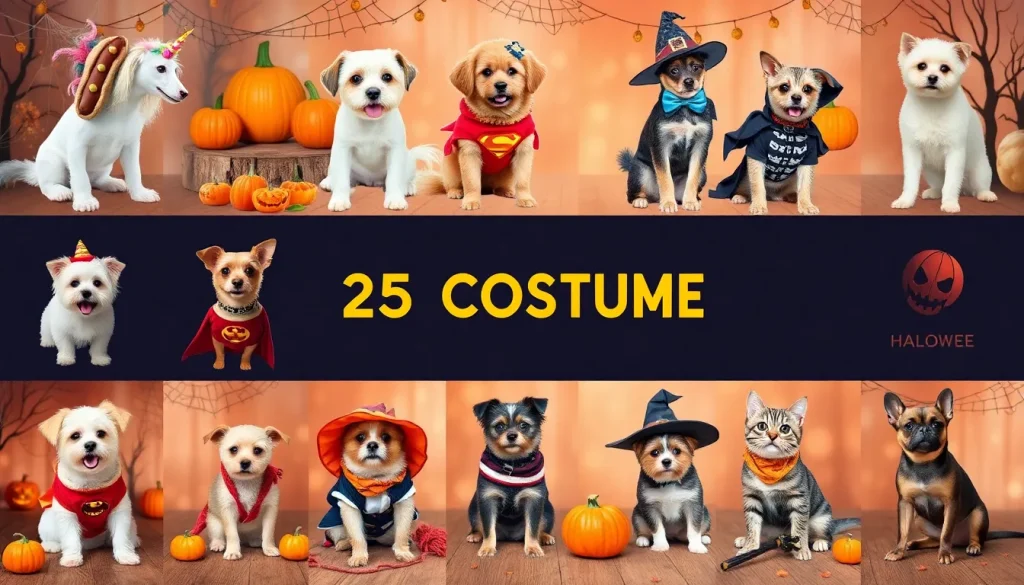Check how old is your pet in human years using our Pet Age Calculator.
Key Takeaways
- Emotional Bonds: Loyalty in pets stems from strong emotional connections formed through shared experiences, affection, and consistent care from their owners.
- Instinctual Behavior: Pets, especially dogs, have evolved alongside humans, with loyalty being a crucial trait for survival and companionship, rooted in their pack mentality.
- Attachment Theory: Pets, particularly dogs, exhibit attachment behaviors similar to human relationships, demonstrating loyalty through seeking closeness and showing distress when separated from their owners.
- Trust and Security: Trust plays a vital role in fostering loyalty; positive interactions increase the release of oxytocin, deepening bonds between pets and their owners.
- Impact of Training: Effective training and positive reinforcement techniques enhance loyalty by building trust and reducing anxiety, creating a supportive environment for pets.
- Variability Among Species: Different pets exhibit varying degrees of loyalty, from the strong, demonstrative loyalty of dogs to the more subtle, affectionate behaviors of cats, reflecting their unique evolutionary backgrounds.
When I think about the bond between pets and their owners, loyalty stands out as one of the most remarkable traits. There’s something truly special about how our furry companions stick by our sides through thick and thin. But what drives this unwavering loyalty?
It’s not just about food or shelter; it’s a complex mix of instinct, emotional connection, and social behavior.
Pets, especially dogs and cats, have evolved alongside humans, forming deep attachments that go beyond mere companionship.
In this article, I’ll explore the fascinating reasons behind this loyalty and how it enriches our lives in countless ways.
Table Of Contents
- 1 Why Are Pets Loyal: Understanding Pet Loyalty
- 2 Psychological Factors Behind Loyalty
- 3 The Role of Training and Socialization
- 4 Different Types of Pets and Their Loyalty
- 5 Conclusion
- 6 Frequently Asked Questions
- 6.1 What drives the loyalty of pets like dogs and cats?
- 6.2 How do positive reinforcements affect pet loyalty?
- 6.3 Why is socialization important for pet loyalty?
- 6.4 How does evolutionary history influence pet loyalty?
- 6.5 What role do emotional bonds play in pet loyalty?
- 6.6 Are there differences in loyalty between dogs and cats?
Why Are Pets Loyal: Understanding Pet Loyalty
Pet loyalty thrives on the unique bond between humans and animals. This loyalty stems from emotional connections and instinctual behaviors that shape how pets relate to their owners.
The Bond Between Pets and Humans
Pets develop strong emotional bonds with their owners through shared experiences and interaction. Positive reinforcement, such as treats and affection, strengthens this bond.
Pets recognize their owners’ voices and scents, which fosters familiarity and comfort. Social behaviors, like cuddling and following their owners, indicate trust and attachment.
Each interaction, whether playing or simply being together, enhances the loyalty pets exhibit.
Evolution of Loyalty in Animals
Loyalty in pets traces back to their evolutionary history. Dogs, for instance, evolved from wolves, forming packs that relied on cooperation and loyalty for survival.
This instinct persists in domesticated dogs, where loyalty manifests in protection and companionship. Cats, though more independent, also exhibit loyalty as a means of survival by forming bonds with humans who provide safety and resources.
This evolution emphasizes the deep-rooted nature of loyalty across species, shaping how pets view their owners in the modern world.
Psychological Factors Behind Loyalty
Pets exhibit loyalty primarily through the emotional bonds they develop with their owners. These psychological factors, including attachment and trust, significantly influence their behavior and relationship dynamics.
Attachment Theory in Pets
Attachment theory provides insights into the loyal nature of pets, particularly dogs. Pets form strong emotional connections through consistent care, support, and affection from their owners.
Dogs display specific attachment behaviors, such as seeking closeness to their owners and exhibiting signs of distress when separated.
Such behaviors indicate a secure attachment, akin to human caregiver-infant relationships. Research shows that these emotional bonds enhance pets’ feelings of safety and belonging, leading to increased loyalty towards their owners.
Trust and Security in Pet Relationships
Trust plays a crucial role in fostering loyalty among pets. Hormones like oxytocin are instrumental in this process, as their levels rise in both pets and humans during positive interactions. These interactions enhance feelings of bonding and affection.
As pets perceive their owners as sources of unconditional support and safety, their trust deepens, promoting devoted behavior.
A secure base established through these dynamics ensures ongoing loyalty, as pets feel secure in their relationships with owners.
The Role of Training and Socialization
Training and socialization play crucial roles in developing and maintaining a pet’s loyalty. Effective methods cultivate trust and positive relationships between pets and their owners.
How Training Enhances Loyalty
Training enhances loyalty through positive reinforcement, which encourages good behavior by rewarding it with treats, praise, or affection.
When pets associate these rewards with their actions, they become motivated to repeat those behaviors. This method fosters trust as pets learn to look to their owners for guidance.
Effective training reduces fear and anxiety, preventing behavioral problems from undermining loyalty. This creates a supportive environment, promoting strong bonds and deeper connections with pets.
Socialization Techniques to Foster Loyalty
Socialization is vital for fostering loyalty, as it involves exposing pets to a variety of people, environments, and other animals. Effective socialization builds confidence in pets while reducing fear and aggression.
This process ideally occurs during the sensitive early-life period of 3-14 weeks but can start at any age. Well-socialized pets experience enriching interactions within their families, making loyalty a more natural response.
Continuous socialization encourages positive experiences, reinforcing the human-animal bond and enhancing the relationship dynamics.
Different Types of Pets and Their Loyalty
Understanding the loyalty of different types of pets provides insight into their unique behaviors and emotional connections with humans. Each species exhibits distinct traits shaped by genetics and their relationship with humans.
Dogs: The Ultimate Loyal Companions
Dogs demonstrate the highest loyalty among pets due to their evolutionary history as pack animals, deeply intertwined with human existence.
Studies confirm dogs recognize their owners by scent, activating brain regions associated with positive emotions and suggesting a form of love.
Dogs show empathy, reacting to their owners’ feelings by displaying loyalty, such as snubbing people who treat their owners poorly.
Their capacity to read human body language and communicate enhances emotional bonds that resemble familial relationships.
Factors like breed and individual personality contribute to varying loyalty levels, solidifying their role as devoted companions.
The mutual care between dog and owner fosters a strong emotional connection, further reinforcing their loyalty.
Cats: Independent Yet Affectionate
Cats exhibit a different approach to loyalty, primarily stemming from their origins as solitary hunters. While their loyalty may seem less pronounced than dogs, it manifests in subtle affectionate behaviors towards their owners.
Cats adapt well to busy households, requiring less attention while entertaining themselves through exploration. The emotional bonds formed with cats, although typically less intense than those with dogs, still hold significance.
Owners experience meaningful companionship, rooted in mutual comfort and affection. Despite their independent nature, cats display loyalty by seeking closeness and engaging in behaviors that reflect their attachment to their human companions.
Conclusion
Understanding why pets are loyal reveals the depth of our bond with them. It’s not just about their need for food and shelter but a complex interplay of instinct emotional connections and trust.
Each interaction we share strengthens this loyalty and enhances our lives in countless ways.
As I’ve learned through my experiences with pets their loyalty is a reflection of their love and attachment to us.
Whether it’s the unwavering devotion of a dog or the subtle affection of a cat this loyalty enriches our relationships and provides a sense of companionship that’s truly irreplaceable.
Embracing and nurturing this bond can lead to a fulfilling partnership that benefits both us and our beloved pets.
Frequently Asked Questions
What drives the loyalty of pets like dogs and cats?
Pets, especially dogs and cats, exhibit loyalty through a combination of instinct, emotional connections, and social behaviors. Their loyalty goes beyond basic needs for food and shelter, highlighting a unique bond developed through shared experiences and interactions with their owners.
How do positive reinforcements affect pet loyalty?
Positive reinforcements, such as treats and affection, strengthen the bond between pets and their owners. These positive interactions create familiarity and comfort, allowing pets to develop trust and attachment to their owners, ultimately enhancing their loyalty.
Socialization helps pets feel more confident and less fearful, promoting positive interactions. By exposing them to various environments and other animals, socialization reinforces their bond with their owners, making loyalty a more natural response in their relationships.
How does evolutionary history influence pet loyalty?
The evolutionary history of pets significantly shapes their loyalty. Dogs evolved from pack animals, relying on cooperation and loyalty for survival, while cats, though more independent, bond with humans for safety and resources, forming attachments that translate into loyalty.
What role do emotional bonds play in pet loyalty?
Emotional bonds are crucial in fostering loyalty. Pets form strong attachments through consistent care and affection from their owners. Hormones like oxytocin also enhance these bonds, promoting trust and making pets perceive their owners as sources of support and safety.
Are there differences in loyalty between dogs and cats?
Yes, there are differences. Dogs typically display higher loyalty due to their pack-oriented nature and history, exhibiting empathy towards their owners. In contrast, cats show loyalty in more subtle ways, reflecting their independent nature while still seeking closeness and affection.





